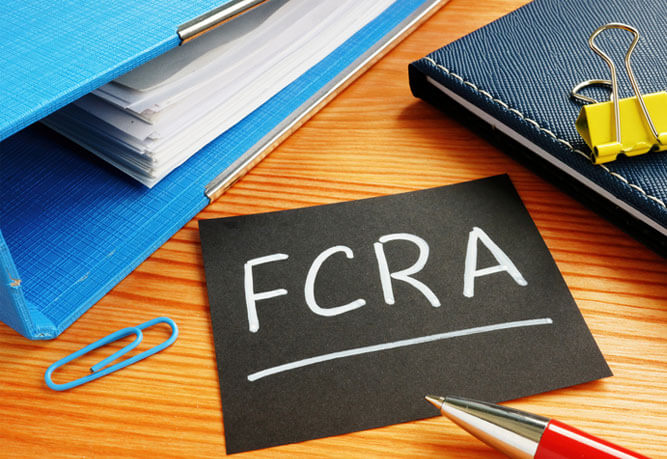Background checks are a critical component of smart, safe hiring practices. Professional background screening companies are an invaluable partner in this process.
They bring considerable investigative resources and skills to the table as well as seamless ATS integrations, intuitive candidate portals, and scalable solutions for businesses of all sizes. One important thing to look for when using a professional background screening company is expertise with compliance.
The laws and regulations surrounding collecting and using consumer information are complex and frequently in flux; background screening organizations stay abreast of the latest federal, state, and local requirements to help guide their clients with compliance. Employers should always review their background screening program with their own legal counsel who have expertise in these laws.
It is critical for employers who use background screening companies to understand their own responsibilities under the Fair Credit Reporting Act (FCRA). Employers are responsible for adhering to and complying with this Act. In practice, this means carefully following the law in all respects.
What is the FCRA?
The FCRA is legislation passed by the federal government in 1970 that was designed to protect consumer information.
The scope of the law has evolved throughout the years to include protecting personal data and the scope of reporting adverse information on a consumer. At its heart, the FCRA is a consumer protection law and was enacted to promote the accuracy, fairness, and privacy of consumer information on consumers.
Partnering with a background check provider the is accredited under the Professional Background Screeners Associated (PBSA) helps ensure that the collection, storage, and disposal of personal data is done in accordance with the law. As an employer who is collecting and using personal information on job candidates, you too, have a number of responsibilities under the law.
What are Employer Compliance Responsibilities?
FCRA compliance at the employer level includes attention to the following:
Permissible Purpose: The FCRA permits employers to use third-party background screening companies to perform background checks for certain permissible purposes, including to conduct screenings on candidates or employees. If an employer is conducting screening for employment purposes, they must follow the provisions within the FCRA in order to do so.
Disclosure and Consent: Candidates or employees must be provided written disclosure of the intent to conduct a background check. This disclosure must be separate from all other documents and be presented on its own. In addition, candidates must provide their signed consent for the background check.
Results: Once the background check is complete, but before any adverse hiring decisions are made, the candidate must be shown the results of the check and be given the opportunity to dispute any incorrect or incomplete results on the report. In addition, candidates must provide their signed consent for the background check.
EEOC Guidance: The Equal Employment Opportunity Commission (EEOC) has guidelines in place to protect against discrimination. Employers should consider certain factors, including but not limited to The nature and gravity of the offense or conduct;
- The time that has passed since the offense, conduct, and/or completion of the sentence; and.
- The nature of the job held or sought.
- Federal or state consumer reporting and ban the box laws must also be considered.
Considering each case on an individual basis and factoring in other information such as time, overall character, and rehabilitation efforts will help employers to put past criminal behavior into context. In addition, having well-defined, position-specific hire/no hire matrices in place for your organization will help you apply standards consistently, fairly, and in accordance with EEOC regulations.
2-Step Adverse Action Procedures: In the event that something is reported in a background screening report that may have an adverse effect on the candidate, such as precludes them from being hired, the FCRA mandates a 2-step adverse action process. First, the employer must provide a written pre-adverse action notification, along with a copy of the consumer report and The Consumer Financial Protection Bureau’s “A Summary of Your Rights Under the Fair Credit Reporting Act.” The employer must allow for a reasonable time, generally, a minimum of at least 5 business days (some jurisdictions require a longer period of time) that gives the candidate the chance to explain, dispute or correct findings before any hiring decision is final. Second, once an adverse hiring decision is final, candidates must be given a written adverse employment decision notice.
Professional background screening companies like Accurate have an important role to play in FCRA compliance. Our advanced software and solutions give employers, and candidates access to forms and legal notices, provide electronic disclosure and authorizations, and distribute pre-adverse and adverse action notices on behalf of our clients. Compliance is much easier with the help of a trusted background screening partner.
What Are the Consequences of FCRA Violations?
As an employer using background checks to help you build a safe workforce, you need to be vigilant about FCRA compliance and be especially cognizant of the following common pitfalls:
- Impermissible purposes. You must have a legally permissible purpose to request a background check.
- Disclosure errors. If you are running background screening on a consumer, you must notify them beforehand, and the disclosure cannot be in the fine print or mixed up with any other papers. One obvious, concise, stand-alone disclosure notice is required. Employers also must be mindful not to include any additional language that may be deemed to be extraneous.
- Missing consent. Individuals must give their consent, via handwritten or digital signature, in order to procure a background screening report.
- Failure to share. If you think you are going to make an adverse hiring decision based on information gleaned from a background screening report, you are required to notify the information with the candidate and inform them of their rights to dispute incorrect or incomplete information. They need to be given the name of the background screening company and instructions how to dispute any information. Once your adverse decision is final, you must notify the candidate of your decision.
Be Smart
Take care to choose a company that takes FCRA compliance seriously, such as Accurate, to perform all of your background checks. We have the expertise and the tools to help keep you compliant from start to finish. Our policies and procedures give you the support and guidance you need to have peace of mind.
For more information on FCRA compliance, check out our on-demand webinar: Disclosures, Authorizations and Adverse Action (FCRA).
The information provided above is strictly for educational purposes. It is not intended to be legal advice, either expressed or implied. Accurate Background recommends that you consult with your legal counsel regarding all employment regulations.



